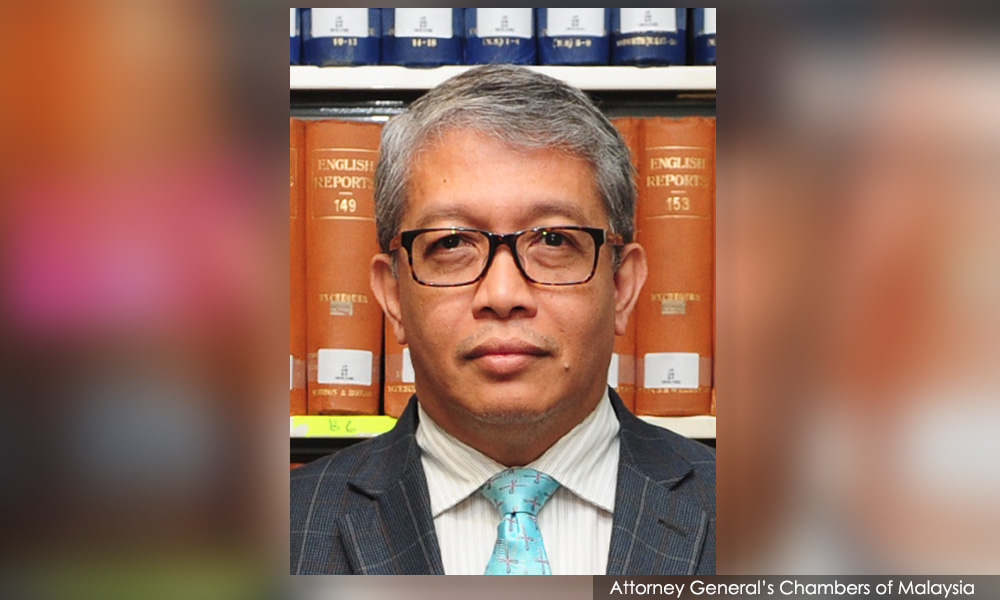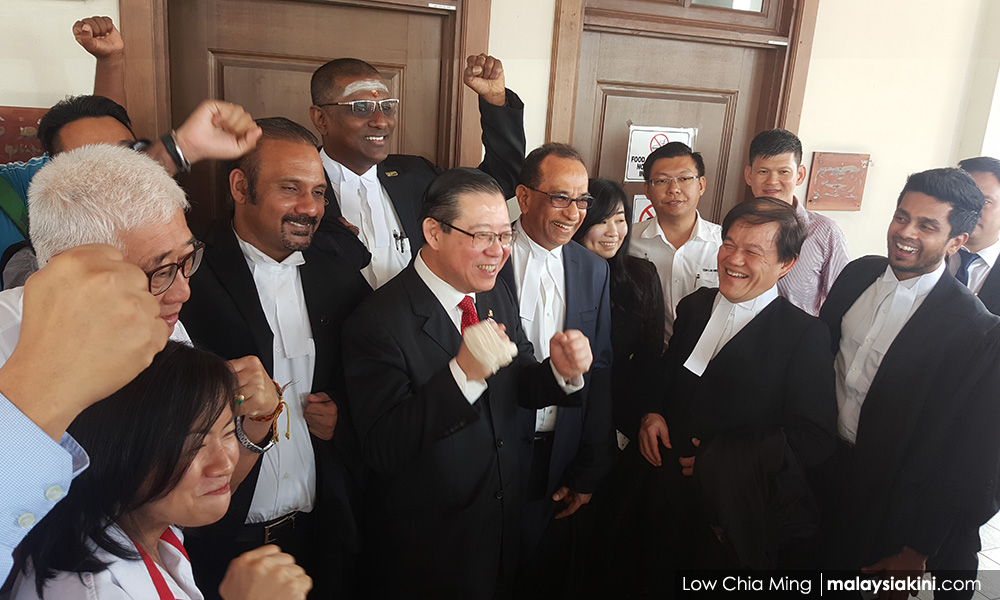Former chief justice Abdul Hamid Mohamad has questioned the Attorney-General’s Chambers' decision to ask for a discharge not amounting to acquittal (DNAA) in the case of former Penang chief minister Lim Guan Eng and businessperson Phang Li Koon.
Writing in his blog today, Hamid wondered if the deputy public prosecutor who made the decision, AGC appellate and trial division chief Hanafiah Zakaria, was taking the "safe" way out by only seeking a DNAA instead of a full acquittal, or a discharge amounting to acquittal (DAA).
“According to Hanafiah, he merely requested for a DNAA.
"Was he uncertain about the decision not to further prosecute, or was he merely making a safe decision, the middle way, so that he could not be blamed and his position would not be jeopardised?" he asked in his lengthy blog post critical of attorney-general Tommy Thomas and his chamber’s actions.
On Sept 3, the Penang High Court granted full acquittals to Lim and Phang although the prosecution had only requested for DNAA.
According to Hamid, if the prosecution was intent on a DNAA, it should appeal the court's decision.
“If the court orders a DAA, the court will be blamed, while Lim, DAP and Pakatan Harapan would be happy, and the attorney-general would not feel uncomfortable when meeting Lim.
“If the prosecution is really serious that it only wanted a DNAA, it should appeal against the order.
"Or, is it very happy with the result since it got more than what it openly asked for, and could blame the court for it?” his post read.
'Under pressure'
Hamid also claimed that Hanafiah (photo) would have been under pressure to drop the charges against Lim and Phang even if Thomas had not said a word to the DPP after delegating the task to him.

“Under the circumstances, he knew he had to decide not to further prosecute Lim and he had to find a reason for it.
“So, he came out with reason that he found the prosecution’s case had weakened after the cross-examination and the discovery of new evidence! I feel sorry for him,” he said in reference to Hanafiah's explanation of charges being dropped.
After the court decision last week, Hanafiah said that the case against Lim and Phang would not have succeeded because the cross-examination of prosecution witnesses had weakened the case.
According to Hamid, however, Hanafiah should have called the lead prosecutor for the case and the MACC to address these shortcomings – such as by finding new evidence or calling additional witnesses.
Instead, it seemed to him that Hanafiah was just "looking for an excuse" not to prosecute.
“Hanafiah was never in court. He did not observe the demeanours of the witnesses, instead he merely read the notes of evidence recorded up to that stage, and ‘opined that 'I would not be fulfilling my duties as Deputy Public Prosecutor to let the case continue knowing full well that the case against Lim… would not succeed at the end of the prosecution case.’
“Considering the circumstances under which he was asked to study the case because of the application by Lim’s counsel not to further prosecute the case, it looks as if he was merely looking for an excuse not to further prosecute...
“He could write that statement without opening the files," he said.

Hamid added that Hanafiah should have at least stated which evidence he was referring to, and explain why the case had been substantially weakened.
“The test should have been whether the cross-examination had caused irreparable damage to the prosecution case, taking into account the evidence of all prosecution witnesses.
“Did he consider whether it could be repaired?”
The correct decision
Hamid, however, said that the court made the right decision from a legal perspective.
This is because a full acquittal or DAA would mean that the case had come to an end, whereas a DNAA would mean that the case remains on the court register and is still pending.
When the prosecution informs that the court that it longer wishes to pursue a case, Hamid said, the common practice is for the court to order a DAA.
“The reason is that, it was the prosecution that brought the accused to court and charged him.
“Later, the prosecution decided it did not want to proceed with the prosecution. Why should the case remain on the court register as a part-heard case, and why should the charge be kept hanging on the accused’s head indefinitely?"
Hamid also expressed sympathy for Penang High Court judge Hadhariah Syed Ismail who he said is being "blamed" for the acquittals of Lim and Phang.
“I also feel sorry for Hadhariah, the judge, who gets the blame for doing something right from the court’s perspective."

